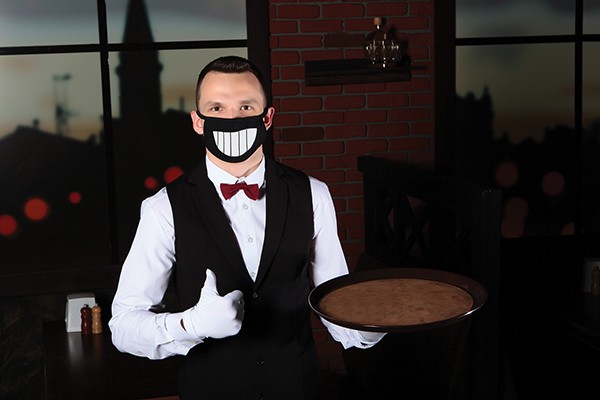A few days ago, Packed House Productions closed their restaurant and bar locations (Slider Inn, Aldo’s, Bardog, etc.) due to a staff member testing positive for COVID-19. They did the responsible thing, which was to shut down temporarily, and I think we can all find some relief there. This isn’t by any means a derogatory analysis of PHP; they are simply Exhibit A on the long road to non-recovery (thus far) in the fight against the current pandemic in the restaurant industry.
COVID-19 is a real and growing problem, as Shelby County’s infection rate numbers continue to increase to levels well above those seen in April and May. As we watch the numbers grow, we also watch some of these small businesses, the backbone of the American economy, continue with back-to-business plans that are put in place at the expense of their front- and back-of-house workers. In response to these concerns, one hears about the required-mask ordinance, the cleaning and safety protocols these businesses have put into place, and how people are “choosing” to come back to work. Unfortunately, too often, these are empty gestures and unimaginative solutions.
 Alla Kostomarova | Dreamstime.com
Alla Kostomarova | Dreamstime.com
The mask ordinance is a necessary precaution but becomes null when applied to dining or drinking indoors — activities that pose the greatest risk of infection. The safety protocols businesses attempt to enforce, such as low occupancy or six-foot-distance seating, simply don’t work. Customers will slip up or ignore them, and violations immediately slip through the cracks.
After the virus has dealt such a devastating blow to their revenue, it is quite naturally in the interest of businesses to make as much money as quickly as possible in order to recover. The safety protocols hinder businesses’ ability to do that, so often protocols are not enforced by managers who care more about saving their business than keeping their employees safe.
Many of the people who are “choosing” to go back to work do not want to be there. While they wear the required PPE, they have to deal with customers who don’t and who have little regard for workers’ safety. Most servers make $2.13/hour plus tips or minimum wage ($7.25/hour) with no benefits, insurance, or protection. The public is expected to pay workers’ bills through tipping, meaning, it’s up to customers to choose whether or not to pay workers.
I write these thoughts not because I want to see small (and some not-so-small) local businesses go under. Business owners are people, too, and have their own dreams and goals, and none of those should be diminished. But we don’t seem to worry as much about their workers’ dreams. What of their goals? What of their lives? What of their experiences? What of their health?
What does it say about our “backbone” when employees are saying, “Hey! This isn’t safe! We don’t feel cared for!” As employees organize and begin to ask questions about continued pay during another shutdown, or ask to be included in meetings about reopening, managers and owners often turn a blind eye — it’s a problem. When businesses make PR posts about how responsible they are but refuse to be transparent about how they will be caring for their lowest-tier employees, it’s a problem. When workers share their stories and experiences, only to have their bosses say they are petulant, choose to “agree to disagree,” or worse, fire them, it’s a problem. When businesses tell their FOH employees that they are “family” then decide not to listen to their family’s needs or concerns about their safety, it’s a problem.
In the restaurant-worker community, we call out local businesses because it is our responsibility to look out for one another. Why have servers and bartenders been so reticent to share their experiences and concerns during this time? They are terrified to lose their jobs for speaking out, for sticking up for themselves or each other. We as the community want safety for our friends, loved ones, and fellow workers. It simply cannot continue this way.
Between COVID-19 and the current rallying of the Black Lives Matter movement, I’ve seen this community come together in ways I never thought possible. I have seen struggle, hardship, sadness, and trauma in the communities of workers, BIPOC, and LGBTQ individuals. I also see so much love, caregiving, willingness to learn, accountability, transparency, and growth in these communities. Businesses that exploit labor aren’t what define this country. The people — the workers, the activists, the artists, the community care-givers — are the real backbone of this country.
To all my friends and to the people I don’t know who are back at work: I see you. I hear you. We all do. Know that your experiences are valid, and not only do you deserve to be treated better, but it is your human right to be treated better. Never forget you have the strength of community behind you.
Chase Baltz is a Memphis activist and artist, and has worked in the service industry for 14 years.